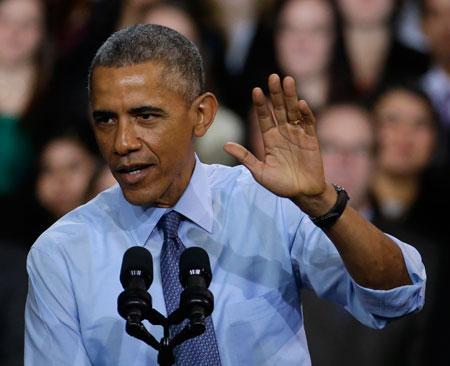You are here
'US-Israeli rift on Gaza unabated despite Netanyahu's warm reception at Congress'
By Ahmad Khatatneh - Jul 28,2024 - Last updated at Jul 29,2024

Activists participate in a pro-Palestinian protest near the U.S. Capitol on July 24, 2024 in Washington, DC. Activists staged multiple demonstrations near the Capitol to protest prime minister Benjamin Netanyahu's visit to Washington DC and Israel's war in Gaza (AFP photo)
AMMAN — The warm reception of Benjamin Netanyahu by the US Congress has been interpreted differently by experts, with some seeing it as reflecting the unaltered Washington-Tel Aviv relations and others as being only symbolic, having nothing to do with the tension between the White House and Israel's longest-serving premier.
Netanyahu's address to a joint session of Congress, as he appealed for more military aid in his war against Gaza contradicted also with the scene outside the Capitol, where thousands of pro-Palestinian demonstrators clashed with the police to voice their opposition to the Israeli war on Gaza.
The division reflects an increasing shift in American perspectives on the war on Gaza. Public opinion in America has recently become increasingly critical while policymakers and politicians still support Israel.
Opposition to Netanyahu was also expressed inside the Congress. Several Democratic lawmakers skipped his speech while former speaker Nancy Pelosi called it “the worst” in the history of Congress. Around 100 congressional interns and other Democratic lawmakers voiced their disapproval. Representative Rashida Tlaib held a sign that read "War Criminal".
In remarks to The Jordan Times, Mohammad Momani, former minister of state for media affairs, explained that the US Congress's support for Israel "does not necessarily mean approval of all the Netanyahu government's actions in Gaza, particularly those involving civilian casualties.
"This support is seen more as a symbolic gesture of the strong US-Israel alliance," Momani, Secretary-General of the National Charter Party, said.
The majority of US lawmakers view the events in October 7 as a significant atrocity, which they use to justify their continued support for Israel, Momani explained. "This does not mean or signal that they approve [of] all the actions that Israel is doing in Gaza that undermine the humanity of Palestinians and the killing of civilians."
Disagreeing with Momani, strategic analyst Amer Sabailah explained that the applause Netanyahu received at Congress was not symbolic but a re-emphasis of the "deep-rooted US-Israel relations."
"From the Arab perspective, there may be a belief that these events [war on Gaza] could alter the US-Israel relationship. However, this alliance is fundamentally strong and deeply rooted.
Asked whether the US upcoming elections have anything to do with the course of events, Sabaileh said, "No, this issue extends beyond electoral politics - it is about a structural and long-standing alliance."
"If former President Donald Trump wins the upcoming election, the administration would likely adopt a more decisive and supportive stance toward Israel. Trump's statements have indicated that he views Hamas as the root of the problem, pledging strong measures against them."
The International Criminal Court has charged Netanyahu and other highest officials with war crimes, including deliberate starvation and targeting civilians in Gaza.
The International Court of Justice has also ruled that certain Israeli actions may violate international law. These allegations have escalated global pressure on Israel and underscored the need for accountability.
Most of Gaza's 2.4 million people were displaced at least once during the war on the besieged Strip which started by the October 7 attack by Hamas fighters on Israel.
Israel's retaliatory military campaign in Gaza following Hamas' unprecedented attack on October 7 has killed at least 39,258 people, according to Gaza's health ministry.
Related Articles
An anonymous US official's reported description of Prime Minister Benjamin Netanyahu as a "chickenshit", or worthless coward, drew a sharp response on Wednesday from the Israeli leader —no stranger to acrimony with the Obama administration.
US President Barack Obama, who once famously said he would "always have Israel's back", may be rethinking that promise as aides begin weighing options in response to Prime Minister Benjamin Netanyahu's pre-election disavowal of a two-state solution to the Middle East conflict.
President Barack Obama will not meet with Prime Minister Benjamin Netanyahu when the Israeli leader travels to Washington in March, the White House said Thursday, one day after being caught off-guard by Republicans' invitation for Netanyahu to address a joint meeting of Congress.



















